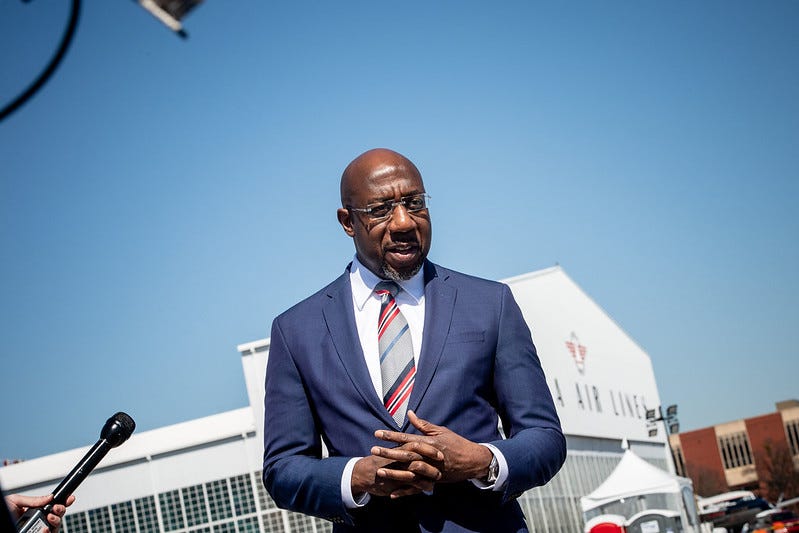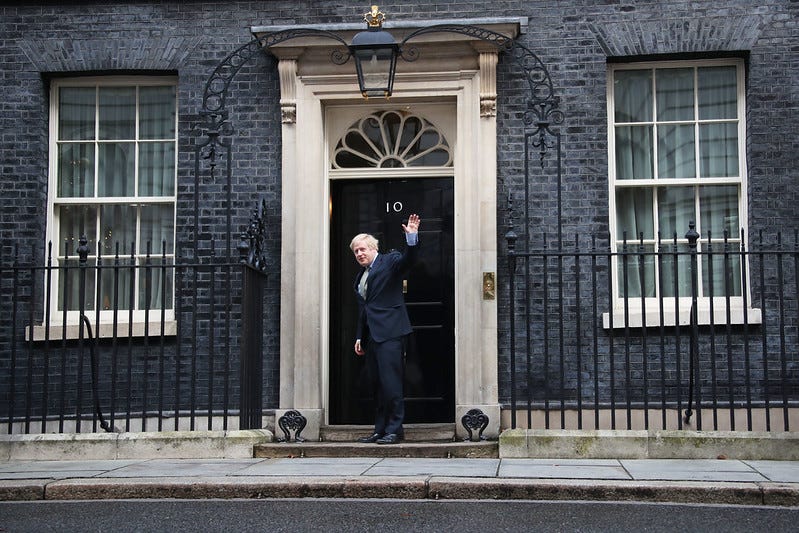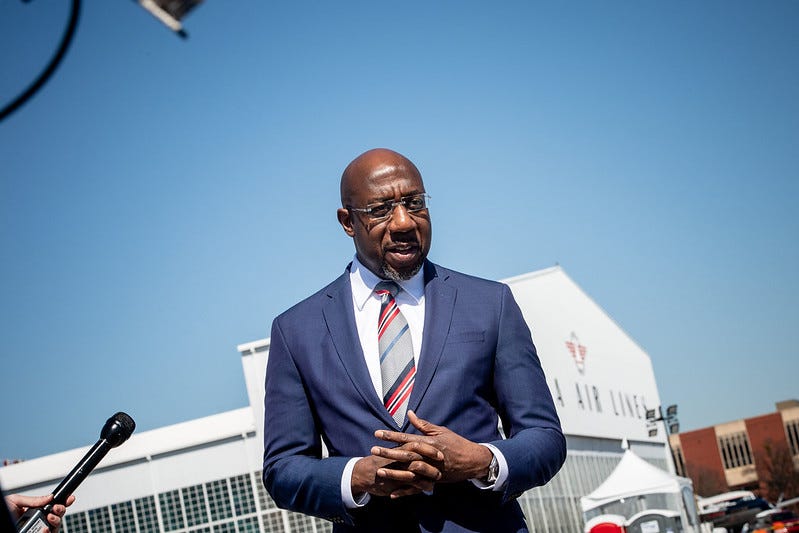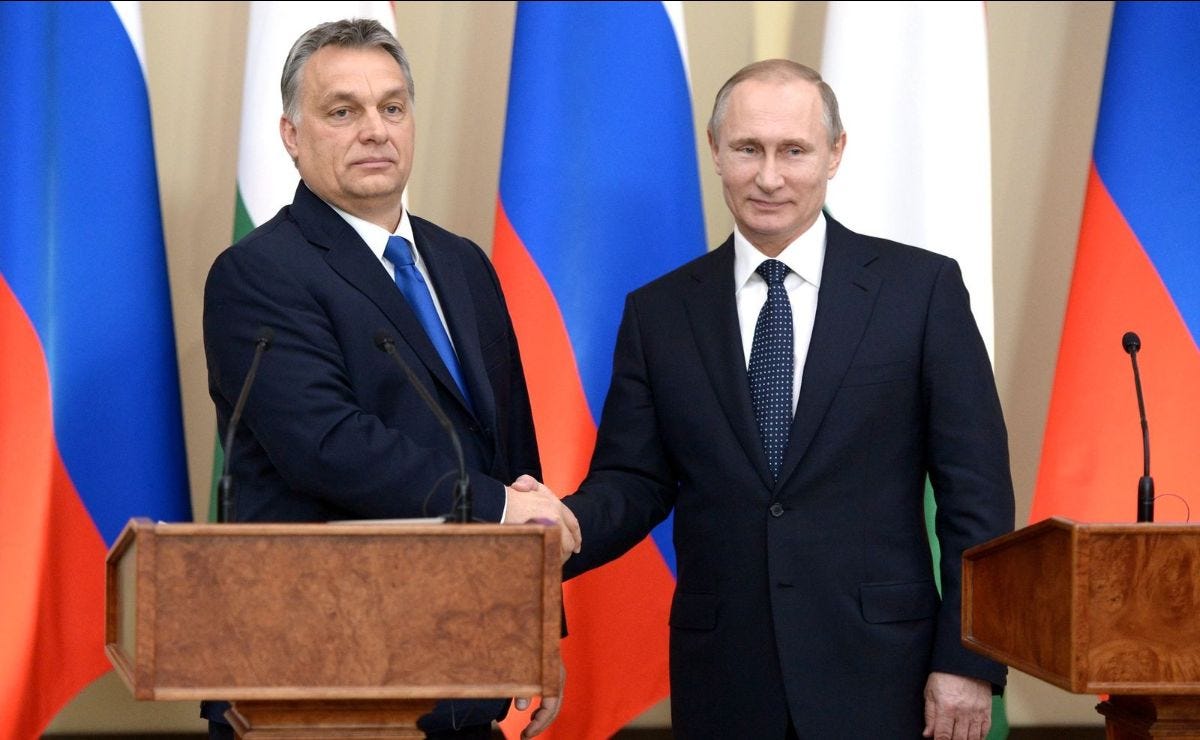Wake Up To Politics - February 2, 2022
Wake Up To Politics: Why are campaigns getting so expensive?
by Gabe Fleisher
Good morning! It’s Wednesday, February 2, 2022. Election Day 2022 is 279 days away. Election Day 2024 is 1,007 days away.
Happy Groundhog Day! Punxsutawney Phil saw his shadow this morning, predicting six more weeks of winter.
Why are campaigns getting so much more expensive?
Food and gas aren’t the only things getting pricier lately: political campaigns are growing more expensive too.
Yes, that’s a trend that’s been going on for several election cycles now. But the increase has grown markedly more significant this time around.
Let’s take just political advertising: per the analytics firm AdImpact, candidates, party committees, and outside groups spent $2.57 billion on ads in the 2016 cycle. That shot up slightly to $3.96 billion in the 2018 cycle.
Then it ballooned to a remarkable $9 billion in 2020. But what’s even more amazing is that AdImpact projects it will stay there, at around $8.9 billion, during the 2022 cycle — despite the fact that this is only a midterm year, without a presidential race on the ballot.
As CNN recently noted, more than $100 million has already been spent on ads in five key Senate races — nine months before Election Day.
The release of year-end fundraising reports this week offered a preview of the unprecedented spigot of cash that’s gushing this cycle. Both national party committees raised record sums in 2021, the reports show, pulling in a combined $400 million — before the calendar year of the midterm elections even began.
Meanwhile, according to the Washington Post, the main congressional campaign committees and super PACs for both parties also had almost $400 million on hand at the end of 2021. For comparisons, at the end of 2017 (the year before the last midterms), those groups had a combined $164 million on hand.
Unlike recent cycles where Democrats benefited from a “green wave,” both the Republican National Committee and the Republican congressional groups outraised their Democratic counterparts in 2021, an auspicious sign for the GOP ahead of a promising election cycle for the party.
Why are election cycles getting so much more expensive? I have a few theories. The first thing that jumps out at me from the new reports is just how widespread the record-setting fundraising levels are. This year, it really isn’t one party experiencing a “green wave”; instead, the rising tide of political money is lifting all boats.
I already covered the party committees. Then consider Donald Trump, who reported having an eye-popping $122 million war chest at the end of 2021 — an unprecedented amount for a former president.
But anti-Trump Republicans also pulled in huge sums of money in the last quarter, from $1.97 million for Rep. Liz Cheney (R-WY) to $5.4 million for Sen. Lisa Murkowski (R-AK). And Democratic candidates raked in the cash as well, most notably Sen. Raphael Warnock (D-GA)’s record-setting haul of $9.8 million. (Some of Trump’s favored candidates, however, faltered in the money race, proving to be the exception here.)
What’s also notable to me is the sheer extent of the races experiencing huge intakes of cash. It’s not just the most traditionally attractive campaigns: for example, take secretary of state races. The campaigns to oversee state elections were once relatively sleepy, but as a slate of Trump-endorsed election deniers are seeking the posts, they’re now anything but.
Per Axios, the Democratic Association of Secretaries of State plans to bring in about $15 million this cycle — “more than 10 times its best-ever fundraising haul.” In 2021, the group reported a record haul of $4.5 million; the Republican State Leadership Committee (which focuses on state legislative and secretary of state races) brought in eight times as much, $33.3 million.

Another factor leading to the cash records: both parties are adopting fundraising tactics from the other. For Republicans, that means leaning into small-dollar donations, once the province of the left. According to Trump’s 2021 report, all but 2% of the donations he received in the last six months of 2021 were under $200.
The emergence of the GOP fundraising platform WinRed has allowed other Republicans to also rake in grassroots donations, challenging what was once an era of uncontested Democratic online donation dominance through their platform ActBlue. (The older site is still on top, however: ActBlue raked in $1.3 billion for Democratic campaigns in 2021, compared to $559 million for Republican campaigns on WinRed.)
On the Democratic side, the change has come in the adoption of tactics they have long derided, such as so-called “dark money” groups (aka political nonprofits) and super PACs. Despite years of decrying “dark money,” the most politically active Democratic-leaning nonprofits outspent their Republican counterparts in 2020, the New York Times recently reported.
With both parties now going full tilt towards raising “dark money” and online donations, the result is clear: there is more money than ever on both sides.
One final observation: These recent fundraising reports also highlighted how disconnected political donations are from political reality, another factor inflating their size. Once upon a time, only the most competitive political races brought in big sums of money. Now, with social media making it easier than ever to raise money (and with virality tending to benefit the more bombastic candidates), some lawmakers reported 2021 hauls totally disproportionate with the races they face.
As reporter Dave Weigel wrote on Tuesday: “What do Rep. Marjorie Taylor Greene (R-Ga.), Rep. Ronny Jackson (R-Tex.), Rep. Jim Jordan (R-Ohio) and Rep. Alexandria Ocasio-Cortez (D-N.Y.) have in common? All of them are running in seats drawn to be impossible to lose this year — and all of them raised more than $1 million” in the final quarter of 2021.
And their challengers are raking in similar sums, despite running in seats they have slim hopes of capturing. Democrat Marcus Flowers, challenging Greene, also raised more than $1 million in the quarter, Weigel noted. That means Flowers has raised $3.2 million this cycle, all for a seat he is almost guaranteed to lose.

But attention-grabbing candidates in can’t-win and can’t-lose races continue to guzzle in money, driving up the levels of political spending to their record highs. However, this has also created a wide gulf between fundraising levels and election outcomes — so don’t expect your favored candidate to win solely because they raise a lot of money.
Democrats experienced this phenomenon in 2020, as Senate candidates like Jaime Harrison in South Carolina and Amy McGrath in Kentucky raised almost $108 million and $88 million, respectively, on their way to double-digit losses.
That’s led to some party strategists calling for a rethinking of the party. “They were always going to lose [the South Carolina and Kentucky] races, but Democrats keep doing this stupid shit,” the famed Democratic strategist James Carville said recently, in his characteristically blunt style.
“They’re too damn emotional,” he continued. “Democrats obsess over high-profile races they can’t win because that’s where all the attention is. We’re addicted to hopeless causes.”
Each morning, WUTP’s team of contributors rotate to offer a briefing on the latest news in a different policy area. It’s Wednesday, so Miles Hession is here with the week’s top global headlines.
Let’s start things off with the latest on the crisis in Ukraine. Over to you, Miles:
-- Russian President Vladimir Putin accused the West of trying to instigate war on Tuesday. After his deputies referred to a recent United Nations Security Council meeting as a “clear PR stunt,” Putin doubled down on his demands of the West, saying that his “principal concerns” had been ignored thus far.
-- The U.S. declared Qatar a “major non-NATO ally” as the bloc seeks alternative sources of fuel for the E.U. in the face of a potential Russian fuel cut-off. Also, the Biden administration warned that the Nord Stream 2 pipeline would be axed should Russia invade, though Germany was more hesitant.
-- Europe is showing signs of disunity. The prime minister of Hungary, Viktor Orban, expressed support for Russia’s security concerns and sharply rebuked sanction efforts, calling them pointless. Germany has so far refused to send weapons to Ukraine, angering allies.
Meanwhile, British prime minister Boris Johnson announced plans for a separate security pact with Ukraine and Poland, strengthening the U.K.’s relationship with Poland, which has increasingly become more disruptive to the E.U. and has been looking elsewhere for allies.
Speaking of the United Kingdom...
More Conservative members of Parliament have called for a no-confidence vote against Johnson in light of fresh “Partygate” allegations. The calls came following a highly anticipated report on a series of parties that took place at the prime minister’s residence during several coronavirus lockdowns. The report, which found “failures of leadership and judgment,” proved extremely damaging despite being heavily redacted due to ongoing investigations by London’s Metropolitan Police into a staggering eight gatherings.
Johnson had hoped the redacted report would assuage public concern as he sought to shift focus onto the ongoing Ukraine crisis, but public outcry has only grown. The findings, which also included a culture of excessive drinking in government offices, has posed the most serious threat thus far to Johnson’s political career. As more members of his own party argue the scandal is undermining his ability to lead, and more information comes to light, the prospect of a no-confidence vote for the prime minister looks like an inevitability.

And here’s Miles’ final global story to watch for the week:
A coup in Burkina Faso, the fourth in the region in the past 18 months, has rocked a regional bloc as they struggle to respond. The military takeover in Burkina Faso was swift as President Roch Kabore was deposed and replaced with military official Paul-Henri Sandaogo Damiba. The coup sparked outcry from the African Union as well as the Economic Community of West African States (ECOWAS), the regional bloc, but with the constitution restored and ECOWAS still reeling from previous coups, the next steps for the bloc are unclear.
Military officials in the country cited ongoing conflict with jihadists as justification for the takeover, and placed blame on Kabore for doing little to suppress the violence. ECOWAS now faces a stark dilemma about providing support in the fight against jihadists for Burkina Faso. Without assistance and isolation, they risk pushing Burkina Faso away from the bloc and towards reliance on foreign mercenaries, as what happened following a recent coup in neighboring Mali. Too much assistance, and they risk tacitly approving the coup of a democratically elected leader. While ECOWAS suspended membership for Burkina Faso in the bloc, they vowed to maintain a working relationship with the country.

A quick roundup from me of what else you should know on the domestic side this morning:
SCOTUS. The office of Sen. Ben Ray Luján (D-NM) announced on Tuesday that he had been hospitalized after suffering a stroke. Luján, 49, is expected to make a full recovery — but his absence in the 50-50 Senate could complicate the coming Supreme Court vote if President Biden’s eventual nominee receives only Democratic support and Luján remains in the hospital.
Meanwhile, Biden is taking steps to foster a bipartisan confirmation process — a change from the bitter Supreme Court battles of the Trump era. The president spoke to Senate Minority Leader Mitch McConnell (R-KY) by phone on Tuesday, and hosted the top Democrat and Republican on the Senate Judiciary Committee in the Oval Office.
The White House also revealed that former Sen. Doug Jones (D-AL) will be the nominee’s “sherpa,” responsible for guiding her through the confirmation process.
Democratic agenda. Sen. Joe Manchin (D-WV) spooked Democrats on Tuesday when he said that the Build Back Better bill, Biden’s signature legislative initiative, is “dead” — although he later clarified that he’s open to starting over on a scaled-down version of the combined child care/climate change/health care package.
Covid. Pfizer applied on Tuesday for emergency authorization for its Covid-19 vaccine to be distributed to children between 6 months and 5 years old. The move came after the FDA took the extraordinary move of urging the company to apply, even after studies showed mixed results for some in the age group and studies continue as to whether they will need three shots instead of the two Pfizer applied for.
All times Eastern.
President Joe Biden and Vice President Kamala Harris will receive their daily intelligence briefing at 10:15 a.m. Then, at 1:30 p.m., they will hold an event at the White House to relaunch the “Cancer Moonshot,” the government initiative to end cancer that Biden started as vice president after his son Beau died of brain cancer.
First Lady Jill Biden and Second Gentleman Doug Emhoff will attend the “Cancer Moonshot” event as well.
White House press secretary Jen Psaki will hold her daily press briefing at 12:30 p.m.
U.S. public health officials will hold a press briefing at 3 p.m. to provide an update on the Covid-19 response. Participants will include Dr. Anthony Fauci, the president’s chief medical adviser; Dr. Vivek Murthy, the U.S. surgeon general; Dr. Rochelle Walensky, the CDC director; and Jeff Zients, the White House Covid-19 response coordinator. The Senate will convene at 10 a.m. The chamber will spend the day advancing several nominees for the Superior Court of the District of Columbia (which is DC’s trial court) and the District of Columbia Court of Appeals (which hears appeals from the Superior Court and is akin to a state supreme court for DC).
At 11 a.m., the Senate will vote to confirm Rupa Ranga Puttagunta to a seat on the Superior Court, followed by cloture votes to advance the Superior Court nominations of Ebony Scott and Donald Walker Tunnage. Then, at 2:15 p.m., the chamber will vote to confirm two more Superior Court nominees — Kenia Seonane Lopez and Sean Staples — followed by a cloture vote to advance the D.C. Court of Appeals nomination of John P. Howard III.Senate committee meetings include a 10 a.m. closed-door briefing on Afghanistan (featuring testimony from Secretary of State Antony Blinken and Defense Secretary Lloyd Austin), a 10 a.m. hearing on improving domestic recycling and composting programs, and a 3 p.m. earing on market consolidation in the news industry.The House will convene at 10 a.m. and hold two hours of debate on the America COMPETES Act, a bill aimed at increasing U.S. competitiveness with China. The measure includes $52 billion to boost semiconductor manufacturing and research, as well as $45 billion to support supply chain resilience. The bill is the House Democrats’ version of the U.S. Innovation and Competition Act, which passed the Senate with bipartisan support last year.
The chamber is also set to vote on six pieces of legislation that were originally scheduled to be considered Monday: the PRICE Act, a Senate-passed bill aiming to encourage government agencies to offer contracts to small businesses, and five bills to rename various post office buildings across the country.House committee meetings include a 10 a.m. hearing on requiring radio stations to compensate artists whose songs they play on the air (featuring testimony from singer Gloria Estefan), an 11:30 hearing on corporate price gouging during the pandemic at 10:30 a.m., and an 11 a.m. hearing on automated vehicles. The Supreme Court is not in session.
That’s it for today. If you enjoy Wake Up To Politics, it’s always appreciated if you donate to support the newsletter or buy some merch. Or if you tell your friends and family to sign up at wakeuptopolitics.com.
If you have any questions or feedback, feel free to email me: my inbox is always open.
Thanks for waking up to politics! Have a great day.
— Gabe






